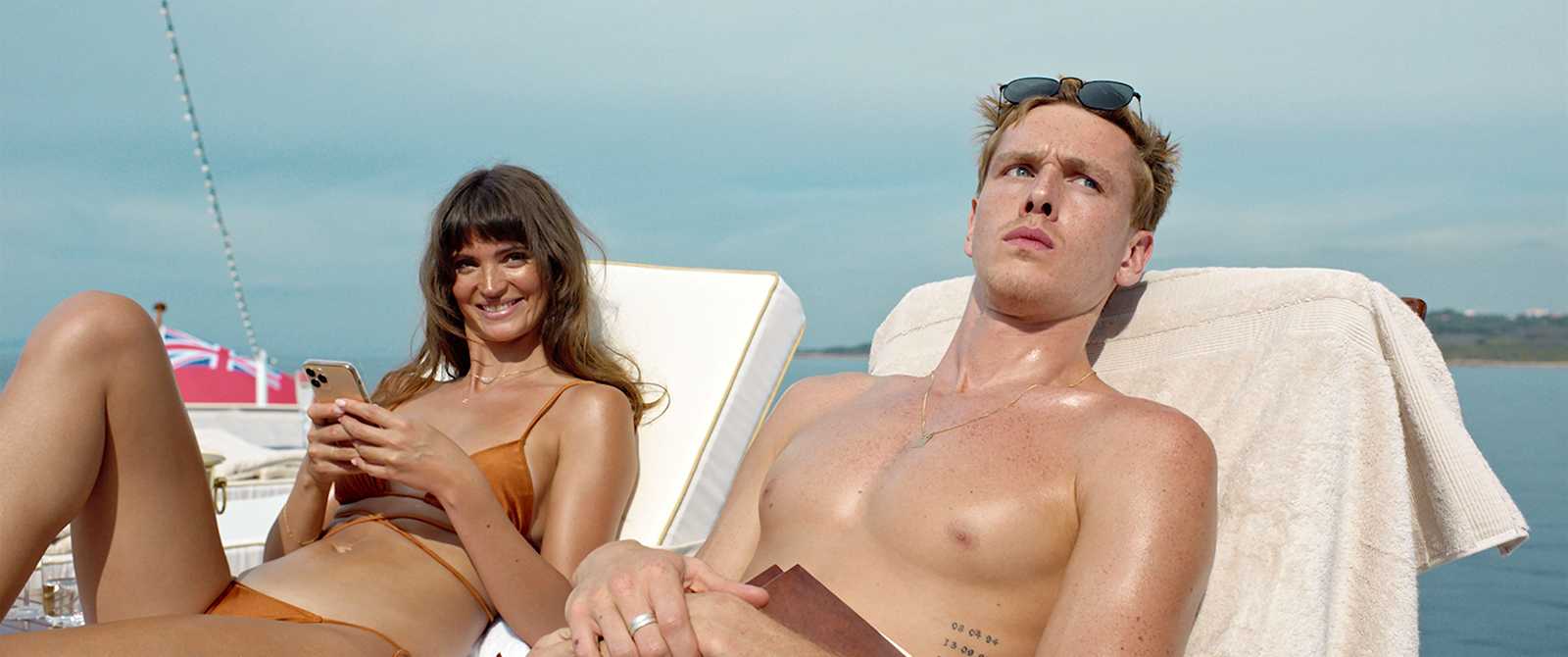Swedish film director Ruben Östlund satirizes the hypocrisy, greed and power dynamics within the upper class in his latest Palme d’Or-winning film “Triangle of Sadness,” which theatrically released on Oct. 7, 2022.
“Triangle of Sadness,” which is divided into three chronological chapters, opens up with Carl (Harris Dickinson) and Yaya (Charlbi Dean), a young wealthy couple who win a free trip around the Mediterranean on a luxury yacht, filled with many upper-class patrons and stressed staff members.
Things on the cruise eventually turn haywire, as guests deal with traumatizing seasickness and a pirate mutiny that leads to a shipwreck, leaving them castaways.
The first part of the movie does drag slightly, with viewers watching the young couple bicker for its near entirety about who would be paying for dinner, even after Yaya had promised to do so the night before.
A criticism of traditional gender roles, particularly the belief that the man should always be expected to pay for dinner, is clearly present, but the point seemed to almost have no end.
Cinematographer Fredrik Wenzel does a gorgeous job at creating a claustrophobic atmosphere for the two to enable a tight, uncomfortable setting between the two actors while they fight, filming them in dark settings in wide-angle shots.
During this first part, Östlund hilariously makes a spectacle out of the upper-class guests as well, marking a highlight of the film.
The second part was filled with commentary on hypocrisy and gluttony within the rich, allowing the audience to both point and laugh at the rich while also sympathizing with the working class.
The dynamic between the socialist captain (Woody Harrelson) and the ultra-capitalist guest (Zlatko Buric) allowed for a hilariously prominent sequence of the two drunkenly battling with quotes from Karl Marx and Ronald Reagan. While this bickering was enjoyable to watch, it concluded on a somber note that the guests who were blessed by capitalism were the winners all along.
The final part of the movie did take its time to conclude, but the natural power dynamic that ensued between the castaways on the island turned out very raw and almost heartbreaking, to say the least.
My major critique of this movie is its awkward pacing. The first act felt incredibly longer than it needed to be, while the second part picked itself up to a normal pace until the third act approached.
The finale, although enjoyable, was an entire movie all on its own, where you could feel the time stretching on.
The relationship between the three parts felt odd but refreshing, with each portion tying together thanks to talented acting by Dickinson and Dean, beautifully rich cinematography that allowed each setting to come to life and deep topics that were hard to miss.
Also, viewers should be advised: Do not watch on a full stomach.




